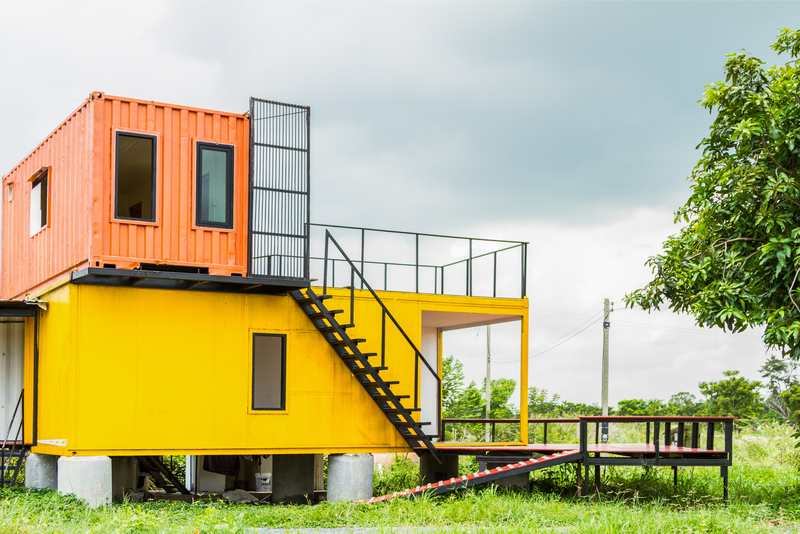
Effective Ways to Handle Hard Rubbish
Hard rubbish refers to bulky waste items that are not easily disposed of through regular waste management systems. These items could range from old furniture to broken appliances and large garden waste. Properly managing hard rubbish is crucial for maintaining a clean and organized environment. In this article, we'll explore effective ways to handle hard rubbish, ensuring environmental sustainability and community cleanliness.
Understanding Hard Rubbish
Before delving into effective disposal methods, it's essential to understand what constitutes hard rubbish. Generally, hard rubbish includes:
- Old Furniture: Sofas, beds, tables, and wardrobes.
- Electronics: Televisions, computers, and other electronic appliances.
- White Goods: Refrigerators, washing machines, and ovens.
- Garden Waste: Branches, logs, and other oversized garden materials.
- Mattresses: Large and cumbersome, making them difficult to dispose of through regular means.
Handling hard rubbish effectively requires planning and understanding of available disposal options.
Why Proper Hard Rubbish Disposal is Important
Proper management of hard rubbish is crucial for several reasons:
- Environmental Protection: Improper disposal can lead to increased landfill waste, contributing to soil and water contamination.
- Community Aesthetics: Piles of hard rubbish can become an eyesore and reduce the quality of life in neighborhoods.
- Health and Safety: Unmanaged rubbish can harbor pests and pose safety hazards.
- Resource Recovery: Recycling hard rubbish can recover valuable materials, reducing the need for raw resources.
Effective Ways to Dispose of Hard Rubbish
1. Council Hard Rubbish Collection
Many local councils offer scheduled hard rubbish collections to help residents dispose of bulky items. Typically, you can place your items on the curb during designated periods, and the council will collect them. Check with your local government for specific guidelines, as there may be restrictions on the types of items that can be collected, and timing can vary.
2. Using Skip Bins
Renting a skip bin is a convenient option for disposing of hard rubbish. These large containers are delivered to your location and picked up once filled. This method is ideal for renovations or major clean-outs. Consider hiring a skip bin service that emphasizes recycling to ensure your rubbish is managed sustainably.
3. Selling or Donating
Items in good condition should not be classified as waste. Consider selling or donating usable goods. Online platforms such as eBay, Craigslist, or Gumtree offer great avenues to sell unwanted furniture and electronics. Alternatively, donating to charities can significantly benefit those in need and reduce environmental impact.
Important Considerations When Donating:
- Ensure items are clean and in working order.
- Check with local charities about accepted items.
- Identify non-profit organizations that offer pick-up services.
4. Recycling Centers
Recycling centers accept a wide range of hard rubbish, diverting waste from landfills. Items such as metals, electronics, and mattresses can be dismantled and repurposed through specialized recycling facilities. Research local recycling centers to understand their capabilities and accepted materials.
5. Professional Junk Removal Services
Professional junk removal services provide an efficient solution for disposing of hard rubbish. These companies will handle all lifting and transportation, ensuring items are disposed of responsibly. Opt for services that prioritize recycling and adherence to environmental regulations.
6. Upcycling and Repurposing
Before discarding your items, consider the potential for upcycling. Creative repurposing can transform old items into something new and useful. Examples include turning a worn-out ladder into a bookshelf or using an old door as a chic dining table. The internet is an excellent resource for finding upcycling ideas and tutorials, inspiring you to give new life to your belongings.
Challenges in Managing Hard Rubbish
Despite the availability of disposal options, challenges remain:
- Cost Factor: Services such as skip bins or professional removals can be expensive.
- Accessibility: Not everyone has access to a vehicle capable of transporting large items.
- Awareness: Many are unaware of local services or options available to them.
Tips for Effective Hard Rubbish Management
Plan Ahead
Assess your hard rubbish regularly and plan disposals in advance. Waiting until items accumulate can lead to overwhelming situations.
Research Local Options
Understand the specific services available in your area. Familiarize yourself with procedures and regulations to maximize your disposal opportunities.
Community Involvement
Encourage neighbors to participate in communal disposal efforts. Group efforts can make hiring services or organizing community sales more cost-efficient and effective.
Conclusion
Managing hard rubbish effectively benefits both the individual and the community. By exploring available options, planning ahead, and considering environmentally friendly solutions, you can handle hard rubbish in a way that minimizes environmental impact and promotes sustainability. Whether through council collections, recycling centers, or creative upcycling, each step contributes to a cleaner, more sustainable world. Let's take the proactive move to manage waste responsibly and encourage others to do the same!
